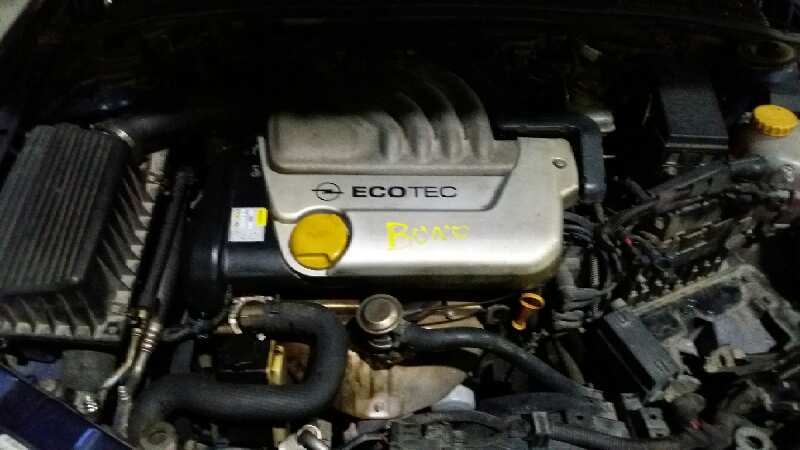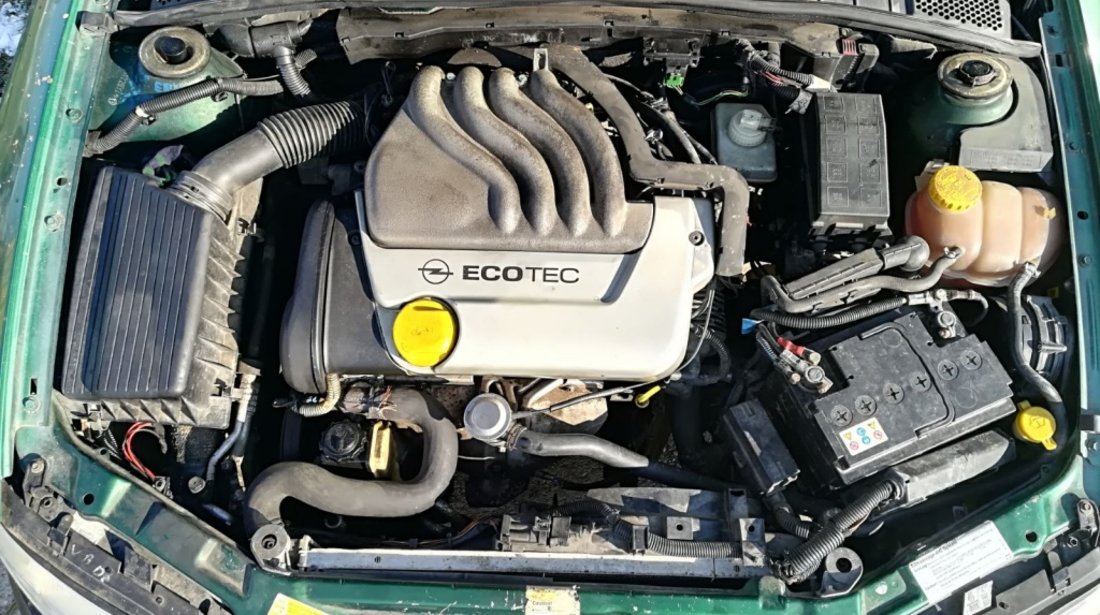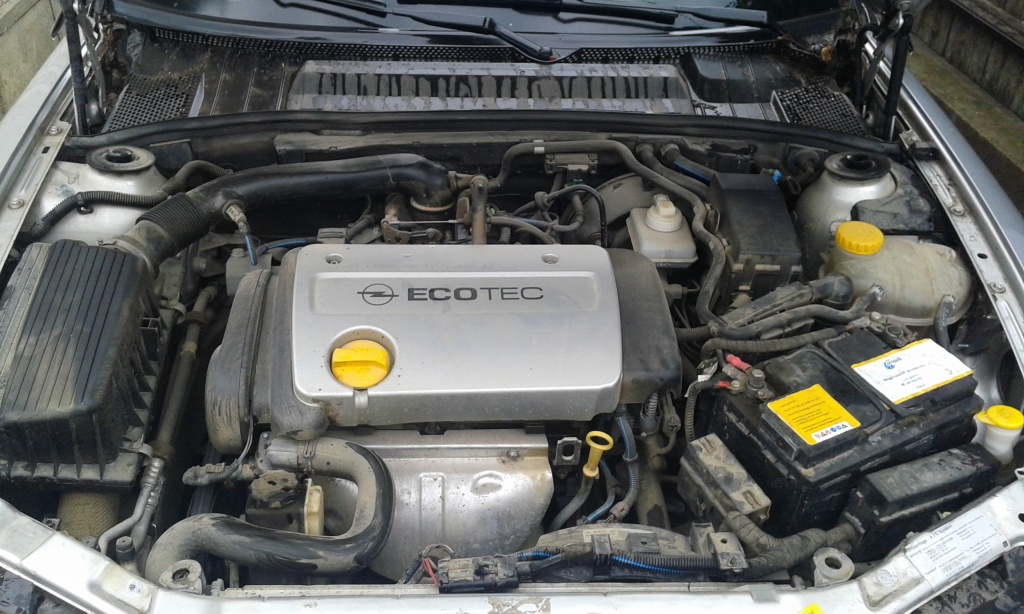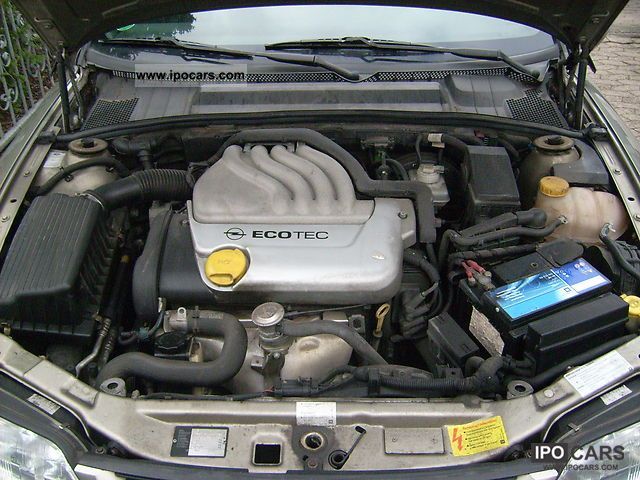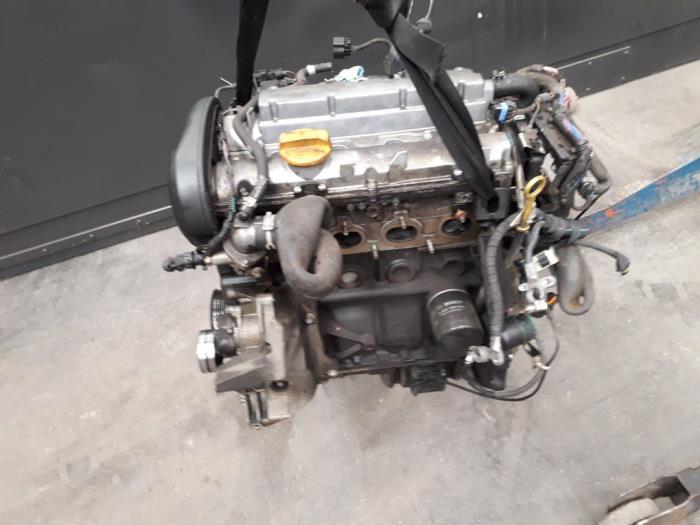The Opel Vectra B 1.6 16V Engine: What You Need to Know
The Opel Vectra B, a staple of the 1990s and early 2000s, offered a variety of engine options, catering to different needs and budgets. Among these, the 1.6 16V engine stood out as a popular choice, balancing fuel efficiency with a reasonable level of performance. This article provides a comprehensive overview of the Opel Vectra B 1.6 16V engine, covering its specifications, common issues, and overall reliability, equipping you with the knowledge you need whether you’re a potential buyer, owner, or enthusiast.
Understanding the Opel Vectra B 1.6 16V Engine
This engine, often referred to by its engine code, typically X16XEL, was a key player in the Vectra B’s lineup. It provided a sensible blend of everyday usability and reasonable running costs, making it a practical choice for many drivers.
Key Specifications and Performance
- Engine Code: Primarily X16XEL, though there may be slight variations depending on the model year.
- Engine Type: Inline-four, petrol engine.
- Displacement: 1.6 liters (1598cc)
- Valves: 16 valves (four valves per cylinder) – hence the “16V” designation.
- Power Output: Typically around 100 horsepower (74 kW) at 6000 rpm.
- Torque: Around 150 Nm (111 lb-ft) at 4000 rpm.
- Fuel System: Multi-point fuel injection.
- Transmission: Primarily paired with a 5-speed manual gearbox, though some models may have been available with an automatic transmission.
Common Problems and Issues to Consider
While the Opel Vectra B 1.6 16V engine is generally considered reliable, it’s not immune to common problems. Being aware of these potential issues can help you make informed decisions about maintenance and repairs.
- Oil Leaks: Oil leaks are a frequent complaint, often originating from the valve cover gasket, camshaft seal, or oil pan gasket. Regular inspection and timely replacement of these components are crucial.
- Coolant Leaks: The cooling system, including the water pump, thermostat housing, and radiator, can be prone to leaks over time. Monitor coolant levels and check for any signs of leakage.
- Idle Control Valve (ICV): A faulty ICV can lead to unstable idling, stalling, and poor fuel economy. Cleaning or replacing the ICV may be necessary.
- EGR Valve Issues: The Exhaust Gas Recirculation (EGR) valve can become clogged with carbon deposits, affecting engine performance and potentially triggering the check engine light. Cleaning or replacing the EGR valve might be required.
- Timing Belt Replacement: The timing belt is a critical component. It’s crucial to replace it at the recommended intervals (typically every 60,000-80,000 miles or 5-7 years, whichever comes first) to prevent catastrophic engine damage.
- Engine Management System (EMS) Issues: Sensors, such as the crankshaft position sensor and the camshaft position sensor, can fail, leading to running problems. Diagnosing the fault with an OBD-II scanner is often necessary.
Maintenance and Reliability
Regular maintenance is key to ensuring the longevity and reliability of the Opel Vectra B 1.6 16V engine.
- Regular Oil Changes: Use the recommended oil grade and change it at the manufacturer’s specified intervals (usually every 7,500-10,000 miles).
- Coolant System Maintenance: Flush and replace the coolant according to the manufacturer’s recommendations.
- Spark Plug Replacement: Replace the spark plugs at the recommended intervals to maintain optimal engine performance and fuel efficiency.
- Timing Belt Replacement: Adhere to the specified timing belt replacement schedule.
- Air Filter Replacement: Keep the air filter clean to ensure proper airflow to the engine.
With proper care and maintenance, the Opel Vectra B 1.6 16V engine can provide years of reliable service.
The Opel Vectra B 1.6 16V in the Real World
The 1.6 16V engine offers a comfortable driving experience, especially for city driving and longer journeys. Its fuel economy is generally good, making it an economical choice for daily use. While it isn’t a performance engine, it provides adequate power for most driving situations. Its relatively simple design also contributes to relatively lower repair costs compared to more complex engines.
Conclusion
The Opel Vectra B 1.6 16V engine is a dependable and practical choice for those seeking a reliable and fuel-efficient car. By understanding its specifications, potential issues, and the importance of regular maintenance, you can make an informed decision whether you are a prospective buyer or an existing owner. With proper care, this engine can continue to provide years of dependable service.
Frequently Asked Questions (FAQs)
- What is the fuel consumption of the Opel Vectra B 1.6 16V? Fuel consumption varies depending on driving conditions, but you can generally expect around 30-40 MPG (miles per gallon), or 7-9 liters per 100 kilometers (km/L), in mixed driving.
- How often should the timing belt be replaced? The timing belt should typically be replaced every 60,000-80,000 miles (96,000-128,000 kilometers) or every 5-7 years, whichever comes first. Consult your owner’s manual for the most accurate recommendation.
- What type of oil should I use in the Opel Vectra B 1.6 16V? Consult your owner’s manual for the recommended oil grade. Generally, a 10W-40 or 5W-30 semi-synthetic oil is a suitable option.
- Is the Opel Vectra B 1.6 16V a good engine for a first car? Yes, it can be a suitable choice. It’s generally reliable, fuel-efficient, and the parts are readily available, making it potentially more affordable to maintain.
- Are there any common modifications or upgrades that can be done to the 1.6 16V engine? While the engine is not known for extensive aftermarket support, basic upgrades like a performance air filter or exhaust system may offer marginal performance improvements. However, it’s generally not designed for significant power gains.
